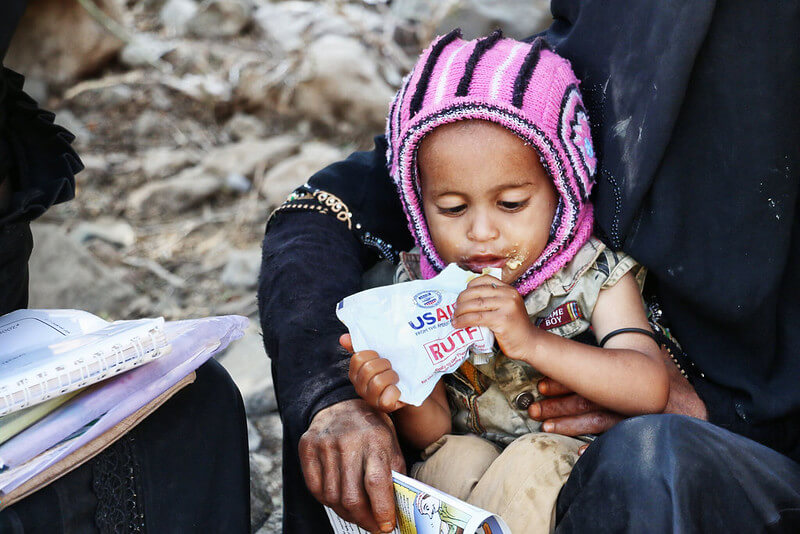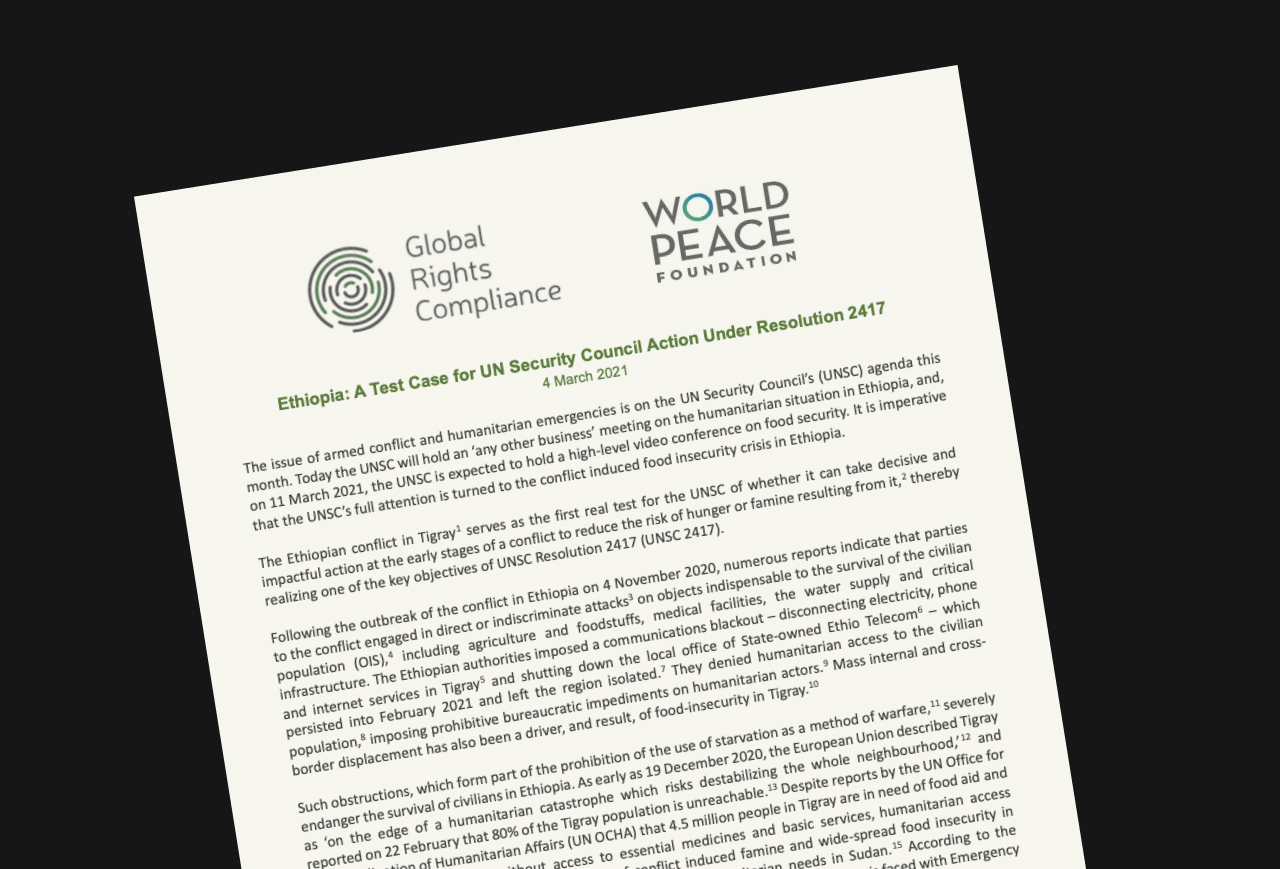Today, states gathered in the Hague, at the 18th Assembly of State Parties to the Rome Statute of the International Criminal Court made a historic decision: they voted unanimously to make starvation a war crime in non-international armed conflicts. The vote came in the form of an amendment to the Rome Statute, tabled by Switzerland in August 2019. It means that the crime of starvation can now be applied to the context where it most frequently occurs: during civil wars. The Rome Statute already prohibits starvation in international armed conflicts—now it is a crime in all armed conflicts.
The Rome Statute Amendment continues international momentum to treat mass starvation as a crime and thereby bring to an end the preventable deaths from hunger and related causes of hundreds of thousands of people each year. The Netherlands, during its term as president of the UN Security Council, steered the adoption of UN Security Council Resolution S/RES/2417 (UNSC 2417), on 24 May 2018. This Resolution called attention to the nexus between armed conflict and famine today, and “strongly condemn[ed] the use of starvation of civilians as a method of warfare.”
Over the last three years, the World Peace Foundation at The Fletcher School and Global Rights Compliance have campaigned against starvation as an instrument of war, combining our expertise on law, conflict and famine. Our joint efforts have provided the intellectual platform for the argument that mass starvation is the product of policy, not natural hazards, and that famine will best be prevented by calling its perpetrators to account. Over the last 18 months our effort has been supported by the Netherlands Government, enabling us to deepen our research into case studies of deliberate mass starvation in South Sudan, Syria, Yemen and elsewhere, and into how the law can best be used to prohibit and punish such crimes. We have engaged state officials, humanitarian aid workers, legal scholars, and journalists, building pressure for change.
Ending starvation crimes also entails a shift in public thinking; developing new vocabularies for defining and describing famine; and sharpening our political, economic and legal tools of analysis. We argue that each case of mass starvation represents a stupendous failure of accountability.
Our work has resonated. Across the entire political spectrum, people recognize that acts of starvation are intolerable and should be prohibited.
As we began our work, we identified one glaring gap in international law: the applicability of the war crime of starvation only to situations of international conflict. The most pressing cases today – South Sudan, Syria and Yemen among them – are all considered non-international armed conflicts. Today’s vote in The Hague removes this lacuna and opens a new avenue for achieving accountability. The law alone cannot end famines or the use of starvation as a weapon of war: but it is necessary first step towards this goal. WPF is proud of the part that our work played in contributing to this significant step forward for accountability for starvation crimes.


